


Source: National Apprenticeship Office
9,352
77 apprenticeship registrations
9,883 apprenticeship programmes
employers
1,165
women apprentice registrations of which 973 Consortia-led 192 Craft
29,772 apprenticeship population




Source: National Apprenticeship Office
9,352
77 apprenticeship registrations
9,883 apprenticeship programmes
employers
1,165
women apprentice registrations of which 973 Consortia-led 192 Craft
29,772 apprenticeship population
ATU offers a number of craft and professional apprenticeship programmes.
Craft apprenticeships are training programmes to become fully qualified craftspersons in various sectors.
Professional /Consortia-Led apprenticeship programmes are developed and implemented through collaboration between consortia of industry leaders, education and training providers, and other key partners.
For more information on apprenticeships please visit www.atu.ie/apprenticeships
All apprentices apply through www.apprenticeship.ie

Benefits for an apprentice
Achieve a recognised national qualification
Gain hands-on industry experience
Get paid while you learn
Benefit from support systems and mentorship
Improve your employability and career opportunities
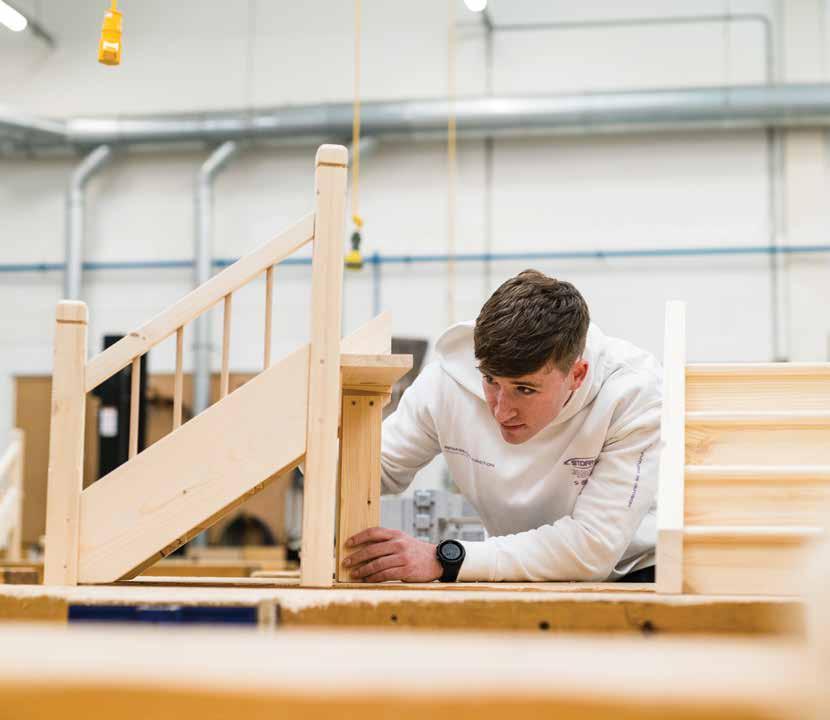
The National Survey of Apprentices 2024, gathered feedback from over 5,500 apprentices across Ireland.
94%
85%
85%
84%
Source: National Apprenticeship Office
of respondents said that an apprenticeship provided them with good career opportunities.
of respondents said that they were pleased they chose the apprenticeship route over other study or work options.
of respondents said their employer is supportive of their development in the workplace.
of respondents said that their apprenticeship gave them confidence in their ability to learn.
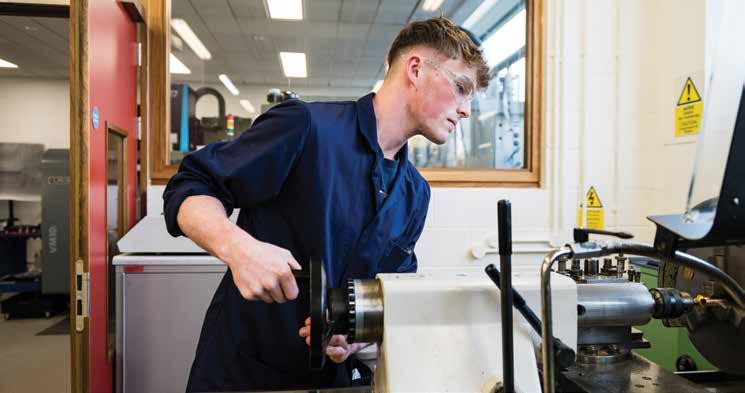
Bachelor of Engineering in Civil Engineering (Level 7)
Higher Certificate in Civil Engineering (Level 6)
With shortages of Civil Engineers across the industry, a new suite of Civil Engineering apprenticeships were developed to meet demand. This apprenticeship is designed to produce highly skilled people who are ready for work in the industry.
On completion of the three-year Bachelor of Engineering in Civil Engineering by apprenticeship, you will become a fully qualified Civil Engineer. On completion of the two-year Higher Certificate in Civil Engineering apprenticeship, you will become a fully qualified Civil Engineering technician. These programmes are delivered on both the Sligo and Galway City campuses.
• Environmental Engineers prevent, detect, reduce, and eliminate pollutants in water, soil, and air.
• Hydrology and Water Resources Engineers manage and transport water.
• Transportation Engineers design, construct, and maintain transportation infrastructure.
• Construction Engineers plan and manage the construction process.
• Geotechnical Engineers study soil properties and secure the foundation of structures
• Structural Engineers design and maintain safe structures such as bridges and buildings.
Civil Engineers are employed across the following sub-sectors of the construction industry:
• Government agencies and Local Authorities.
• Consulting Engineers– supporting clients in planning, designing and managing construction projects.
• Civil Engineering Contractors – constructing assets e.g. buildings, roads, bridges, energy supplies and utilities networks.
• Specialist Suppliers – providing specialist materials and products to contractors.
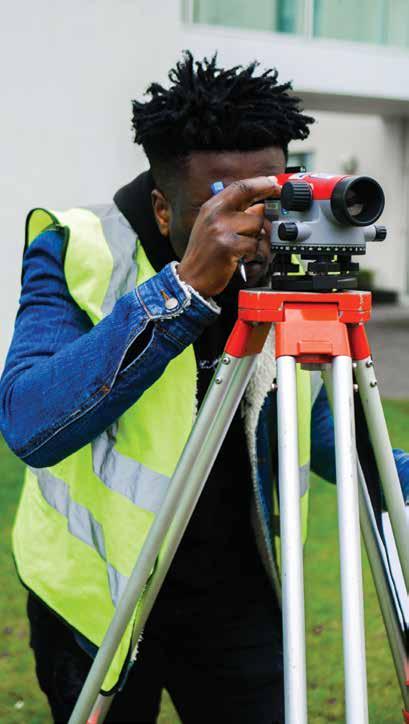
• You have an interest in practical and hands-on learning.
• Earn while you Learn Apprenticeship model –Gain your qualification while earning a full-time income.
• Practical Learning and a Flexible Schedule: Apprentices work 4 days a week in paid employment, gaining valuable industry experience. They attend online lectures one day per week and also attend campus one day per month for labs/workshops.
• Excellent employment prospects in a varied and exciting industry. Civil Engineering is an industry where there are more jobs than people!
• You must be at least 18 years of age (or within 6 months of programme start).
• Hold a QQI Level 5 (Leaving Cert or equivalent).
• Pass grade in Maths at Level 5 (or equivalent).
• Secured employment with a SOLAS-approved employer. See page 20 for more information on how to find apprentice employers.
Acceptance of mature applicants will be based on an interview process to determine previous experiential learning, the student’s suitability to the subject area and their commitment to achieving the minimum intended programme learning outcomes.
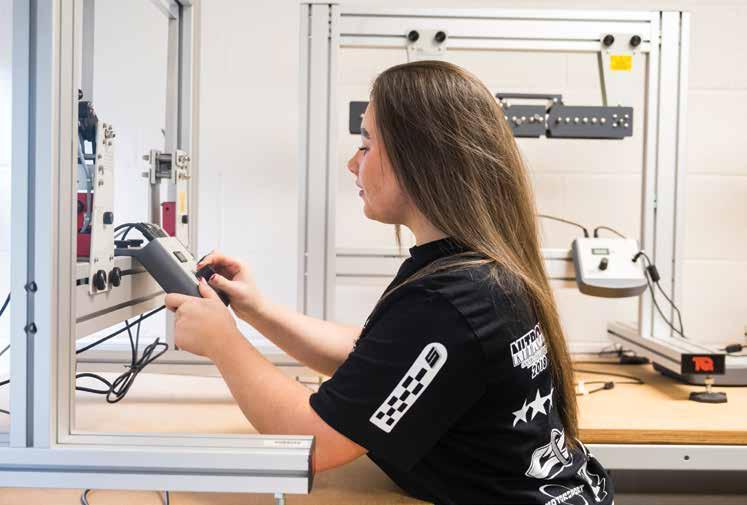
Bachelor of Engineering (Hons) in Advanced Manufacturing (Level 8)
Bachelor of Engineering in Manufacturing (Level 7)
Higher Certificate in Engineering in Manufacturing (Level 6)
This aim of this programme is to develop innovative, industry-ready Manufacturing Engineers with the knowledge, skills and competence to be able to improve the productivity, quality, and efficiency of sustainable smart manufacturing operations. As a result of the rapid growth of advanced manufacturing over the past decade, the skills requirements of engineers have changed.
The advanced manufacturing sector today needs workers equipped with the knowledge of new technologies and sustainable techniques to lead in this new era of advanced manufacturing and digitisation. There is a shortage of skilled engineers in this growing area. These manufacturing engineering apprenticeships have been designed with close alignment to the current and future needs of the Irish manufacturing industry.
This is a four-year programme, with two embedded awards. Apprentices can study for two years for a Higher Certificate (Level 6) in Manufacturing Engineering, or three years for a Bachelor of Engineering (Level 7) in Manufacturing Engineering, or complete the four years for the Bachelor of Engineering (Hons) (Level 8) in Advanced Manufacturing Engineering. Apprentices spend 70% of the time working in industry and the remaining 30% spent in the university.
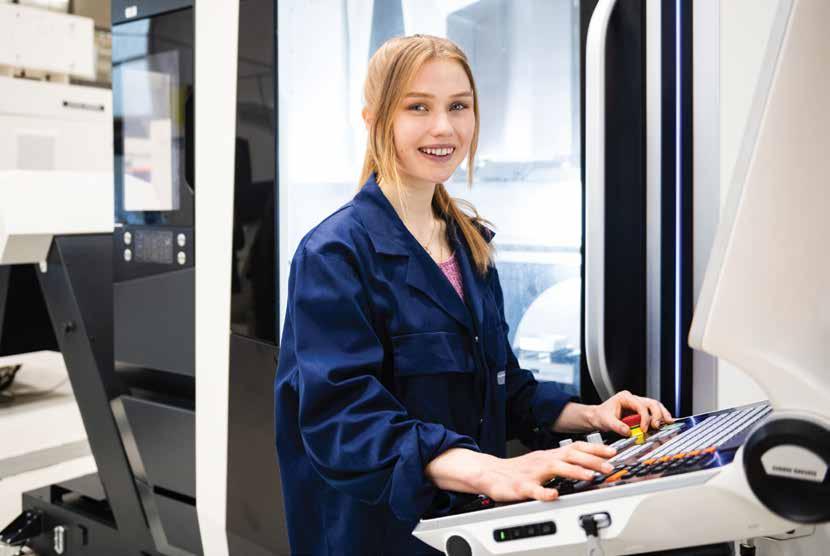
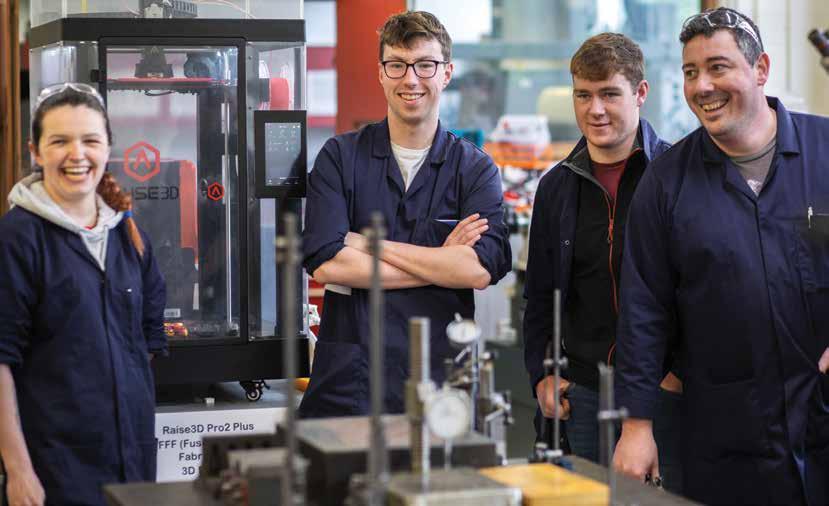
This programme allows apprentices to develop leading-edge skills needed to contribute to industry in a number of interesting and high-tech areas.
• They could work on Technical Projects using CAD, CAM and Advanced Manufacturing Processes.
• They could focus on Operational Excellence Projects, applying the tools of Lean Manufacturing, Six Sigma, Quality, Process Validation, Sustainability and Project Management).
• They will be skilled the new Industry 4.0 space, ready to work with Robotics, PLCs, Sensors, Data Visualisation and System Integration.
• You must be at least 18 years of age.
• Have obtained a minimum of 5 O6 (pass) grades in the Leaving Certificate for Level 6 and Level 7 Manufacturing Engineering apprenticeships / Minimum of 6 O6 (pass) grades in their Leaving Certificate for the Level 8 Advanced Manufacturing Engineering apprenticeship.
• Pass grade (O6/H7) or better in Mathematics and English or Irish.
• Holders of the LCA may gain entry following completion of a FETAC Level 5/6 Award.
• Secured employment with a SOLAS-approved employer. See page 20 for more information on how to find apprentice employers.
Mature applicants should visit www.manufacturingapprenticeships.ie for entry requirements.
Irish Medtech Association
www.manufacturingapprenticeships.ie
E: info@manufacturingapprenticeships.ie
T: +353 1 605 1677 ATU
Contact Dr Paul O’Dowd, Programme Chair E: paul.odowd@atu.ie
Bachelor of Arts (Hons) in Insurance Practice (General) (Level 8)
Bachelor of Arts (Hons) in Insurance Practice (Life) (Level 8)
The three-year, work-based training programme combines academic with on-the-job learning, allowing you to acquire technical and soft skills. As an apprentice, you will be recruited into an insurance organisation, where you will learn the professional and practical aspects of the job while studying towards your degree. Apprentices work 4 days a week in paid employment, gaining valuable industry experience. They attend online lectures one day per week facilitated by the Sligo academic team.
The career of an insurance professional is varied and diverse, and this programme ensures graduates have a sustainable career in insurance that reflects best practices and industry requirements and demands.
The aim of the BA (Hons) in Insurance Practice with a specialism in life insurance is:
• To provide apprentices with a qualification that is academically robust and vocationally relevant.
• To ensure apprentices have a specialist knowledge of the relevant theory and practice of the insurance sector, that will enable them to meet the Central Bank of Irelands Minimum Competency Code and increase their employability as graduates.
• To develop wider business skills such as self-awareness, problem-solving and critical thinking to enable them to link their learning to work-based practices.
• To develop competencies that will empower them to engage with emerging trends in the industry and prepare them for a range of working environments.
• To provide apprentices with a learning pathway that is recognised internationally.


Graduates of the programme have many exciting opportunities available to them, including:
• Financial Adviser: Providing personal financial advice to clients.
• Investment Adviser: Guiding clients on investments and portfolio management.
• Mortgage Adviser: Helping clients with mortgage applications and advice.
• Pension Consultant: Advising on pension plans and retirement savings.
• Wealth Manager: Managing assets for high-networth individuals.
• Compliance Officer: Ensuring financial practices meet regulatory standards.
• Bank or Credit Union Official: Working within the Retail branch of a financial institution.
• You must have 6 Leaving Certificate subjects.
• A minimum of two subjects at grade H5 or better.
• Remaining subjects at O6/H7 or better.
• Subjects must include either English or Irish.
• Mathematics is a required subject for this programme.
Mature applicants are assessed on the basis of educational qualifications and an entrance interview.
For further information, please email: apprenticeship@iii.ie
Additional information on the Insurance Practice Apprenticeship programmes can be found at www.atu.ie/apprenticeships and www.earnandlearn.ie
ATU’s Sligo campus is the co-ordinating provider of the Transport Operations & Commercial Driving Apprenticeship with the Freight Transport Association Ireland as the industry partner.
The apprenticeship is a direct response to the industry need for professionally trained drivers and is the first qualification on the national framework of qualifications (level 6) linked with the profession of Commercial Driving.
The Transport Operations & Commercial Driving Apprenticeship provides the academic qualification and practical training and work experience that supports a vibrant and exciting career in the freight distribution and logistics sector. Apprentices will also receive expert driving lessons and training in advance of completing their C / CE driving test and attaining the Driver CPC qualification.
Apprentices work 4 days a week in paid employment, gaining valuable industry experience. They attend online lectures one day per week facilitated by the Sligo academic team.
For Apprentices, this programme is the perfect entry point into the Freight, Distribution and Haulage Sector, with broad exposure allowing apprentices to gain invaluable work experience to support an exciting career in the logistics sector.


All applicants must:
• Hold a Full ‘B’ Driver Licence
• Be at least 18 years of age
• Meet medical requirements for driving
In addition applicants should:
• Hold a QQI Level 5 (Leaving Cert or equivalent) in five subjects.
• Pass grade (O6) in English and Maths at Level 5 (or equivalent).
• Secured employment with a SOLAS-approved employer. See page 20 for more information on how to find apprentice employers.
Mature applicants should visit www.cdap.ie/apprentice for more details on entry requirements.
For further information, please email: info@cdap.ie
Additional information on the apprenticeship programme can be found at www.atu.ie/apprenticeships and www.cdap.ie
Craft apprenticeships are training programmes to become fully qualified craftsperson’s in various sectors.
Atlantic Technological University facilitates the Phase 4 and Phase 6 stages for the following craft apprenticeships:
Electrical
Carpentry & Joinery
Toolmaking
Motor Mechanics
Wood Manufacturing and Finishing
Metal Fabrication
Refrigeration and Air Conditioning
It is important to note that for craft apprenticeships, ATU has no control over which apprentices are assigned to the university for the completion of the Phase 4 and Phase 6 elements.
A craft apprenticeship is generally made up of seven phases, three off-the-job and four on-the-job. To become a fully qualified craftsperson it usually takes four years, in which time you will spend around 40 weeks off-thejob training. The diagram below gives you a general outline of the phases of an apprenticeship.
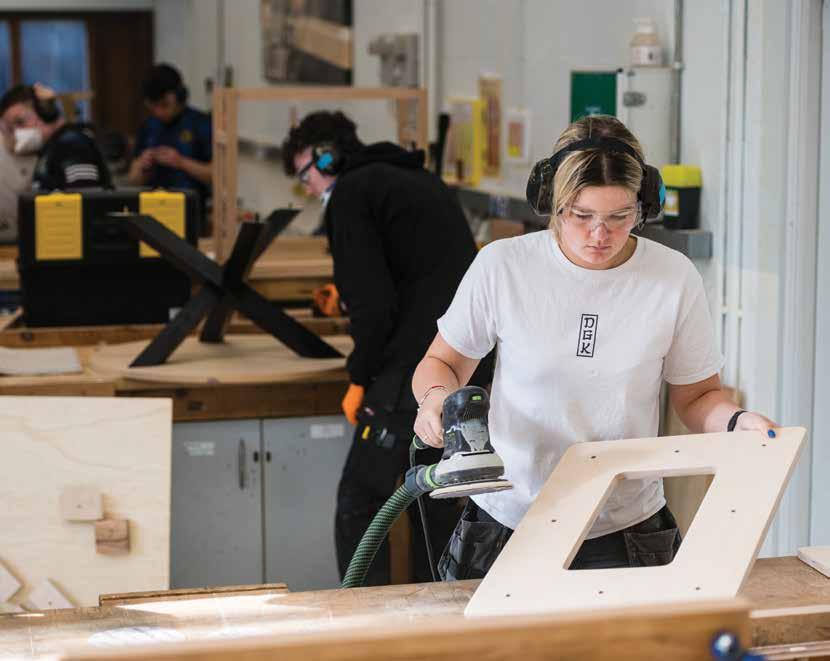
Minimum 16 years of age
Minimum educational qualifications grade D in five subjects in Junior Certificate Examination or
The successful completion of an approved pre-apprenticeship course or
Three years’ work experience gained over 16 years of age in a relevant designated industrial activity as SOLAS shall deem acceptable.
The applicant must be employed by a SOLAS approved employer, who then registers the apprentice with SOLAS.
On completion of this four-year apprenticeship, you will become a fully qualified electrician, with a QQI Level 6 Advanced Certificate Craft – Electrical.
You may then choose to either work as an electrician with a range of employers or work in a self-employed capacity.
As an electrician you will be involved in the installation, commissioning, testing and maintenance of various wiring systems and services in domestic, commercial and industrial applications. Your work will range from wiring domestic houses and retail units, to more complex systems involving process control and maintenance in industrial plants, hospitals and power stations.
Electricians also service, maintain and repair electrical equipment, both domestic and industrial.
If you are employed by the Electricity Supply Board (ESB) you will be working on electrical power supply and distribution.
Electricians employed by electrical contractors are usually engaged in installation of lighting, heating and power equipment and the repair of existing equipment and appliances.
If you work in industrial employment you will generally be engaged in the maintenance and repair of factory plant, machinery and generating equipment.
On completion of this four-year apprenticeship, you will become a fully qualified carpenter and joiner, with a QQI Level 6 Advanced Certificate Craft – Carpentry and Joinery.
You will go on to be employed in the construction industry on building sites, in a joinery shop or in maintenance and other areas like renovating buildings, shopfitting, exhibition/display work.
As a carpenter and joiner your job will involve cutting, shaping and joining wood and wood-based products using a wide range of hand tools.
Carpenters and joiners use their skills to set out and construct roofs, install floors, stairs and windows, built-in furniture and hang doors. You will study drawings, perform craft calculations and select materials to meet design requirements. Site work includes the construction of buildings and houses which require first and second fixing, including roofing.
On completion of this four-year apprenticeship, you will become a fully qualified motor mechanic, with a QQI Level 6 Advanced Certificate Craft – Motor Mechanics.
You may then choose to work as a motor mechanic in the motor industry in a dealership, repair shop or test centres like the NCT.
As a motor mechanic, you will be involved in servicing, maintenance and fault diagnosis of light passenger cars and light commercial vehicles. You will carry out routine service procedures as recommended by the vehicle manufacturer, as well as diagnose and resolve problems with the operation of the mechanical and electrical systems of vehicles.
Motor mechanics are also involved in examining and preparing vehicles for the National Car Test (NCT) or the Commercial Vehicle Road Worthiness Test (CVRT).
On completion of this four-year apprenticeship, you will become a fully qualified wood manufacturer and finisher, with a QQI Level 6 Advanced Certificate Craft – Wood Manufacturing and Finishing.
You may then choose to work as a wood manufacturer and finisher in a joinery or furniture and kitchen manufacturer.
Working as a wood manufacturer and finisher, you will be involved in cutting, shaping and joining wood and wood-based products using wood working machines, power tools and hand tools. You will manufacture household furniture like tables, chairs, doors and stairs.
The areas of work covered are modern, traditional, reproduction and restoration; stairs, windows, doors and wood mouldings; and stains, polishes and finishes.
With this four-year apprenticeship, you will become a fully qualified metal fabricator, with a QQI Level 6 Advanced Certificate Craft – Metal Fabrication.
You may then choose to work as a metal fabricator in industries such as constructional steel; pressure vessels; tank and boiler manufacture; ship building and ship repair; and general engineering.
Working as a metal fabricator, your job will involve the installation and manufacture of a range of metallic systems to include pressure vessels; tank and boiler manufacture; structural steel systems; plate steel systems and piping systems. Your job will include the reading of drawings and working with materials such as low carbon steel, stainless steel, alloy steel and aluminium.
A metal fabricator uses skills such as measuring, marking out, cutting and welding materials using different processes and assembly techniques.
On completion of this four-year apprenticeship, you will become a fully qualified refrigeration and air conditioning craftsperson, with a QQI Level 6 Advanced Certificate Craft – Refrigeration and Air Conditioning.
Working as a refrigeration and air conditioning craftsperson you will be required to install, maintain and repair all types of refrigeration and airconditioning equipment and systems.
A refrigeration and air conditioning craftsperson can work in industries such as domestic, marine, commercial and industrial. You will be required to install, maintain and repair items such as household, hospital, hotel and shop refrigerators, display cabinets, deep freezers, cooling plants, cold rooms and refrigerated transport.
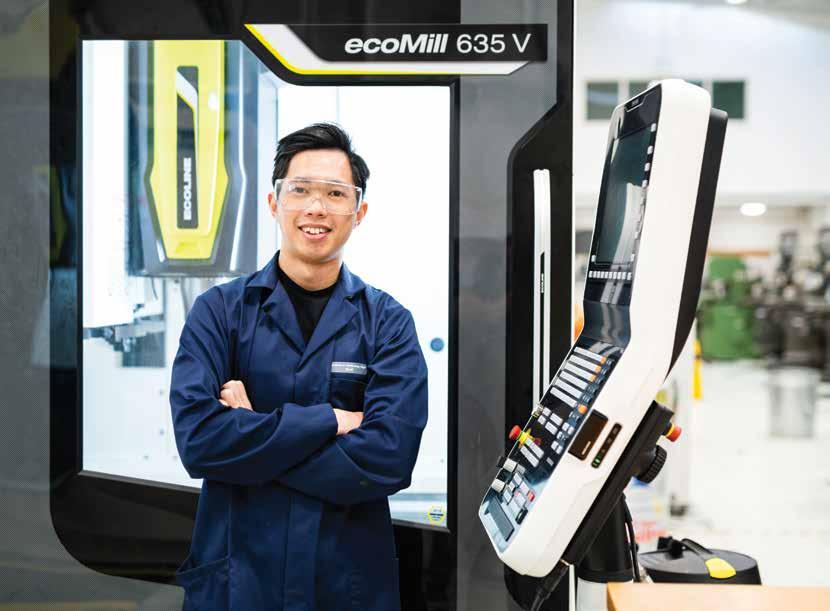
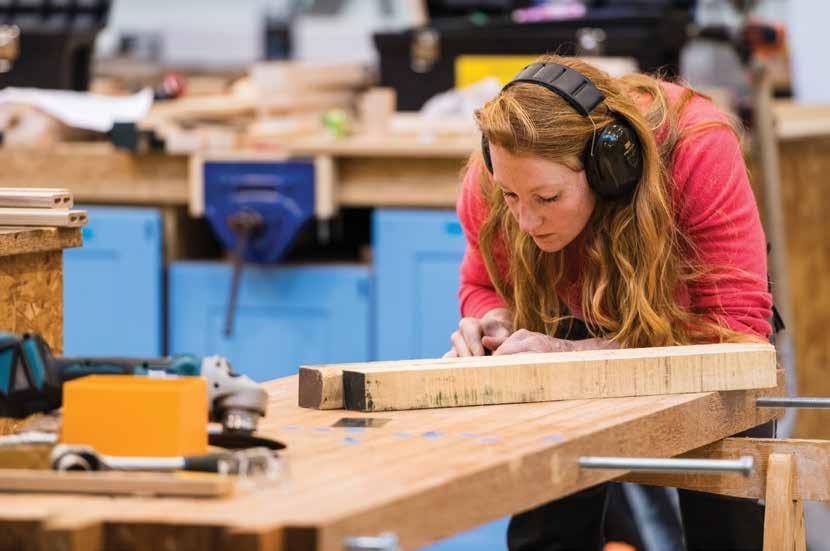


To become an apprentice in Ireland, you must be hired by an employer that is formally approved by SOLAS as a national apprenticeship employer.
Please note that direct application to ATU is not possible.
To find an apprenticeship, you can search apprenticeship vacancies at www.apprenticeship.ie
Here you can search for vacancies by location and by apprenticeship type.
Please see page 20 for further details on how to find an employer.
Your local ETB may hold details of employers seeking to employ an apprentice.
Step 3
Step 4
Register with training provider
Your employer will then register you with a training provider, e.g. ATU
The first step in securing a place on an apprenticeship is to gain employment with a SOLAS-approved employer. Apprenticeship opportunities are advertised by the employers. There are several places to find out about the vacancies:
1. Generation Apprenticeship website (www.apprenticeship.ie)
Visit the Generation Apprenticeship website (www.apprenticeship.ie) to find apprenticeship opportunities. Companies recruiting apprentices will advertise positions in the “Find Apprenticeship Jobs” section of the website. These listings are updated throughout the year, and you can filter the results by region and type of apprenticeship you are interested in.
2. Approach SOLAS-approved employers directly
• Research Companies: You can view the current list of SOLAS-approved apprentice employers in your region/county on the ‘Find Apprenticeship Employers’ section of the Generation Apprenticeship website. Research these companies and create a list of companies in your area that interest you.
• Visit Company Websites: Go to the careers or jobs section of their websites to check for apprenticeship vacancies. Express your interest in an apprenticeship and enquire if they are accepting applications or would be willing to take you on.
Monitor job portals
Search for apprentice vacancies on jobs portals including:
• www.irishjobs.ie
• www.indeed.ie
• www.jobs.ie
When applying, ensure your CV and cover letter are tailored to the company. Highlight your passion for the industry, showcase relevant skills and qualifications, and express your enthusiasm for the apprenticeship programme. Additionally, prepare for your interview by researching the company and role, and approach the interview with confidence and openness.
Start Early - Recruitment Happens All Year Round!
Unlike university applications, there is no fixed deadline for apprenticeship applications. and recruitment by various employers takes place throughout the year. Employers recruit throughout the year, with larger companies often starting as early as September (up to a year in advance), some vacancies are advertised around January and February, while other opportunities are advertised in spring and early summer.
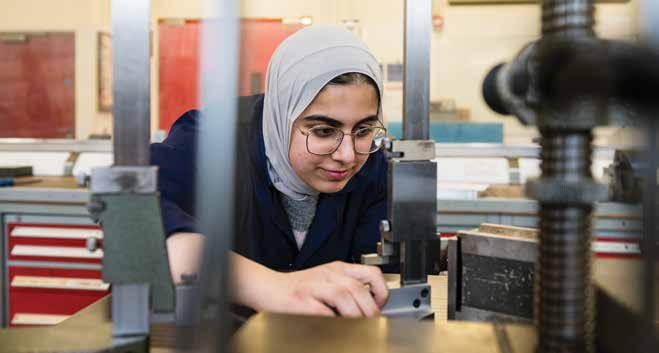
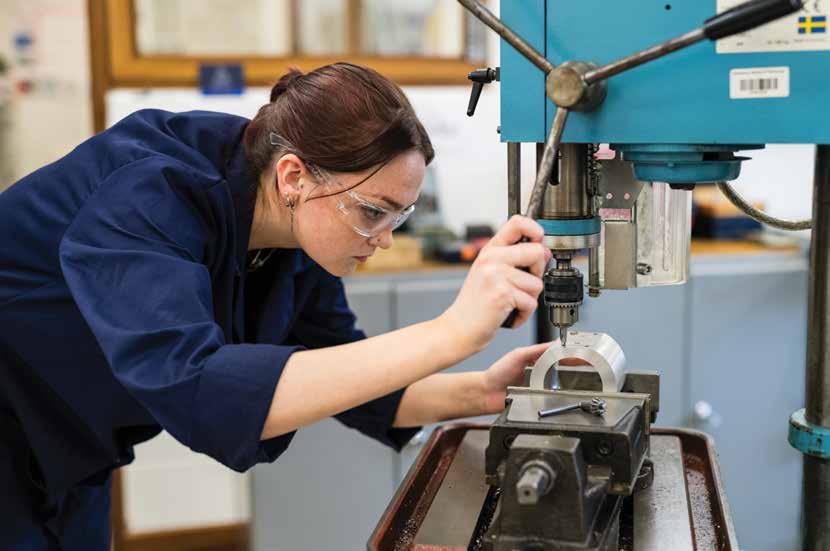


Doing the apprenticeship programme has accelerated my career and allowed me to progress at a far quicker pace than my peers. I began the apprenticeship after completing my Leaving Certificate. Since then, I have successfully completed my degree and have now begun working towards the Certified Financial Planner accreditation.
If you know which career path you want to follow, the apprenticeship programme is a direct route to this career. I was able to gain experience in the Life and Pensions industry from day one. Working four days a week allows you to absorb so much in terms of working and technical experience. Secondly, I was earning a salary while gaining a qualification. This programme will absolutely take you out of your comfort zone but in doing so, helps you adapt and become a more rounded individual.

After completing my Leaving Certificate, I received a CAO offer to study engineering at university however, after careful consideration, I decided to take the apprenticeship route instead. I knew that hands-on experience in the construction industry was highly rated and I chose to do the BEng in Civil Engineering by Apprenticeship because it is focused on giving students the skills needed for industry.
Having job security and a consistent salary, as well as the high employment rate from the programme really appealed to me. As part of the apprentice programme, I enjoy working with new people and constantly learning. I have received great support from the university, colleagues at work and from the other apprentices on the course. To do an apprenticeship you need to be determined and self-motivated. I highly recommend this programme.

Many aspects of the Manufacturing Engineering apprenticeship caught my attention, particularly the diverse range of modules it offered. With this apprenticeship, I was particularly drawn to the focus on the diversity within manufacturing engineering. I’ve had the opportunity to learn about automation, robotics, machining, coding, and much more. I’ve gained a broad and solid foundation in manufacturing engineering and I’m excited to continue building on that knowledge. The lecturers at ATU have been outstanding and incredibly supportive throughout my journey. I have received strong support throughout my studies, but I’ve also had access to mentorship and guidance from experienced professionals within the company. I am also delighted to have been nominated for ‘Apprentice of the Year’ for two years in a row, which is such an honour.
I can honestly say that I’ve enjoyed every aspect of my apprenticeship and I would highly recommend the apprenticeship route to everyone—it has been truly life-changing for me.
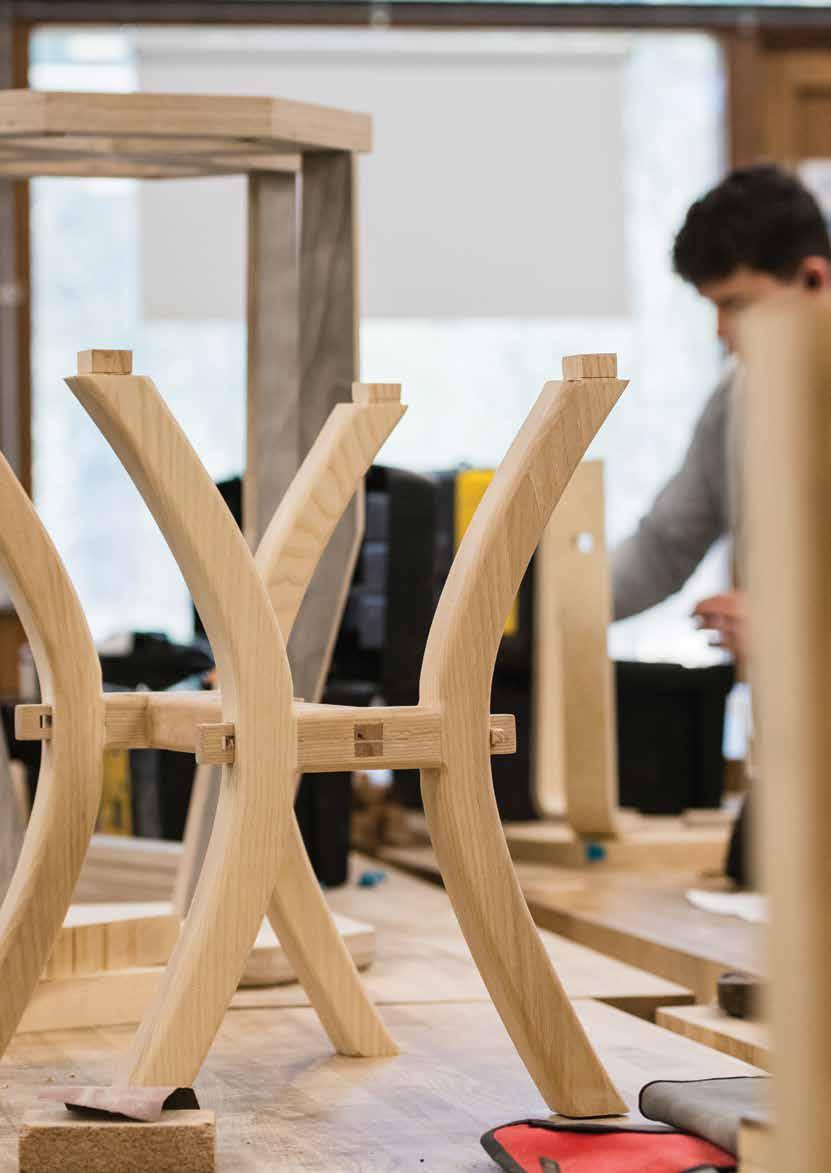

Marketing Officer (Apprenticeships) Atlantic Technological University (All ATU Campuses)
Email: Leona.Barron@atu.ie T: +353 (0)74 9186048
www.atu.ie/apprenticeships
All apprentices apply through www.apprenticeship.ie
When you have finished with this document please recycle it.